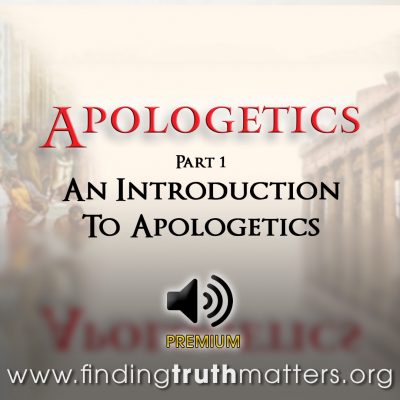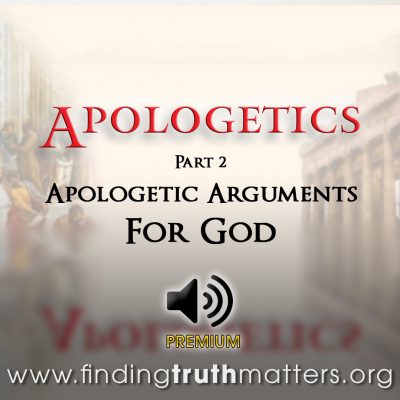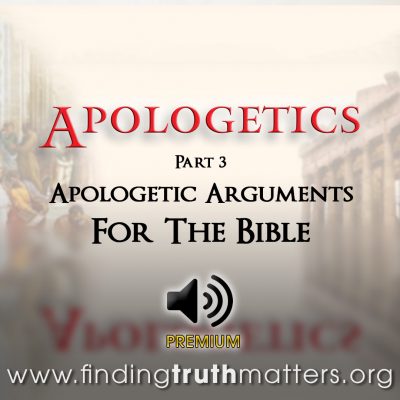home > articles > culture > What Christians Really Believe 
By Dr. Andrew Corbett
What is the popular perception of what Christians believe? If we are to believe what the popular media reports, Christians are known far better for what they are against than what they actually believe. Therefore, it’s not surprising that most people think that Christians are essentially homophobic, misogynists, who seek to control people through the medieval superstitious beliefs. This new uninformed perception of Christianity is perpetuated by politicians who, while claiming to be Christians, actually espouse views and values antithetical to Christianity. This was seen dramatically in both the US Presidential elections of 2008/12 and the Australian Federal election of 2013. In both campaigns major candidates claimed to be adherents of Christianity yet they ridiculed the Bible and asserted that it endorsed their particular views on issues such as marriage and sexuality, and what constituted ‘Christian’ social justice. Most recently in Australia, the Opposition Leader, Mr Bill Shorten, speaking at the Australian Christian Lobby National Conference, claimed to be a Christian yet asserted positions foreign to classic Christianity. So just what do Christians really believe?
Bill Shorten Q&A from Australian Christian Lobby.
 What is it that people now think Christians believe? Surveys asking this question usually list the following –
What is it that people now think Christians believe? Surveys asking this question usually list the following –
* Christians hate gays!
* Christians are against abortion and a woman’s right to choose!
* Christians ignore science, disregard facts and evidence, and hold a medieval superstitious set of beliefs they call, ‘faith’.
* Christians think they are right and everyone else will be sent to Hell because they do not agree with their doctrines!
* Christians think that only those who go to church will go to heaven.
And if Mr Shorten is correct, Christians are, “hiding behind the Bible to insult and demonise people on the basis of who they love.” What may not be immediately obvious to the reader is that none of the above list is actually a belief. These are opinions about Christianity – not a summary or survey of beliefs. What this compilation of public opinion about Christianity indicates is that Christians are often better known for what they are against than what they are for or even what they believe.
 #5 GOD
#5 GOD
The foundation of Christianity is God. This is a particular belief about God that makes Christianity unique.
God eternally has unique attributes and exclusively exercises certain divine prerogatives. These attributes include, love, holiness, immutability, eternality, wisdom, omniscience, omnipresence, and omnipotence. His divine prerogatives include, creating ex-nihilo, giving life, atoning for sin, forgiving sin, judging sinners, glorifying the redeemed.
Unlike human beings who are constituted as a physical body and a centre of self-consciousness (often referred to as “a soul” and what makes someone a ‘person’), God is one immaterial being (not confined to a physical body, yet still a being) with three centres of self-consciousness. These centres of self-consciousness, or persons, are known as The Father, The Son, and The Holy Spirit. In this way, God’s attribute of love is made eternally possible since giving, sharing, caring, consideration for another are integral to love. Christianity does not believe in three Supreme Beings. This is a non-Christian view known as polytheism. Christianity does not believe that God’s immaterialness means that He is not a being with personhood. That idea is a non-Christian view known as pantheism.
Belief in God is the starting-point for Christianity. This is drawn from how the Bible itself announces God in its opening statement, “In the beginning God…” Atheism and Christianity are therefore incompatible belief systems.
#4 BIBLE
 Immediately following the foundational belief in God, Christianity is grounded in the Bible as being the most authoritative source of information about God, His actions, and His plan. This confidence in the Bible is not mere blind faith but rather a reasonable position derived from rigorous scrutiny. That is, if the Bible cannot withstand scrutiny – scientifically, historically, geographically, philosophically – and be found to be credible, then it should be rejected as false. Christians have come to a confidence that the Bible is reliable, accurate, and divinely inspired.
Immediately following the foundational belief in God, Christianity is grounded in the Bible as being the most authoritative source of information about God, His actions, and His plan. This confidence in the Bible is not mere blind faith but rather a reasonable position derived from rigorous scrutiny. That is, if the Bible cannot withstand scrutiny – scientifically, historically, geographically, philosophically – and be found to be credible, then it should be rejected as false. Christians have come to a confidence that the Bible is reliable, accurate, and divinely inspired.
One of the greatest evidences for the divine inspiration of the Bible is fulfilled prophecies. In Isaiah 52-53 written around 720BC, there are some 40 prophetic predictions given about the Messiah (Jesus Christ). These include how we will grow up, His appearance, what He will do, how He will be tortured, how He will die, where He will be buried, and that He will rise from the dead. So accurate are these predictions about the life of Jesus of Nazareth that skeptics asserted that this Isaiah passage must have been written several hundred years after the event. But then in 1948 the Dead Sea Scrolls were discovered which included copies of the prophecies of Isaiah dating to hundreds of years BC!
Added to this are the words of Jesus in Matthew 24 which record the outlandish claim that Jerusalem would be destroyed and the Temple dismantled stone by stone. This was one of the charges levelled against Jesus at His trial and was not disputed. Jesus predicted Jerusalem’s destruction and this is recorded in the first three books of the New Testament, Matthew, Mark, and Luke. We know that the last book of the New Testament was written in A.D. 65. Therefore, these prophecies by Jesus of Nazareth were published and widely known by A.D. 65 – at least 5 years before their dramatic fulfilment.
The closing book of the Bible, The Revelation, makes some staggeringly testable prophecies. In Revelation 17:9 it states that there are seven kings, five have died, one now is, and the seventh will also be the eighth who will also be the tenth. The ruling power, the Romans, was founded as a kingdom by Julius Caesar (1), who was succeeded by Augustus (2), then followed by Tiberius (3), then Caligula (4), then Claudius (5), then Nero (6) who was ruling in A.D. 65 when The Revelation was written. After Nero came a quick succession of would-be Emperors (Galba, Otho, Vitellius) who never consolidated the throne. They were treated by some as fulfilling one reign since each of them only had power for weeks or months. Thus, the next Emperor, Vespasian, was considered ‘the eighth’ king, but others completely disregarded these three temporary kings, in which case Vespasian was widely considered ‘the seventh’ king. But others count these three kings in the line of Roman kings which makes Vespasian ‘the tenth’ king. This is a remarkable fulfilment of Biblical prophecy and reasonably goes beyond the bounds of mere guesswork!

 Far from being an outdated, archaic Holy Book that better belongs to the Dark Ages than to our modern era of scientific and cultural enlightenment, those who have taken the time to open the lid of this literary treasure chest have discovered riches and jewels for their lives beyond their wildest imagination. And you can too.
Far from being an outdated, archaic Holy Book that better belongs to the Dark Ages than to our modern era of scientific and cultural enlightenment, those who have taken the time to open the lid of this literary treasure chest have discovered riches and jewels for their lives beyond their wildest imagination. And you can too.
#3 MAN
 Christians have reasons to believe two great truths about humanity. Firstly, every person descends from the first parents who were created in the image of God, of whom God said, “This is very good.” Mankind was created with the instinctive capacity to resemble God’s great and noble self-sacrificial love toward others. Darwinian Evolution, a competing model for explaining the origin of man, is grounded in survival of the fittest. This is the exact opposite of what the Bible teaches and Christians accept about mankind’s inherent goodness and nobility frequently seen in acts of altruism (where a man dives into a flooded river at the risk of losing his own life to rescue someone else’s drowning baby). The movie, “John Q” very powerfully illustrates this point where a father is prepared to have the heart surgeon take his life so that the father could give his own heart to the surgeon to transplant into his son.
Christians have reasons to believe two great truths about humanity. Firstly, every person descends from the first parents who were created in the image of God, of whom God said, “This is very good.” Mankind was created with the instinctive capacity to resemble God’s great and noble self-sacrificial love toward others. Darwinian Evolution, a competing model for explaining the origin of man, is grounded in survival of the fittest. This is the exact opposite of what the Bible teaches and Christians accept about mankind’s inherent goodness and nobility frequently seen in acts of altruism (where a man dives into a flooded river at the risk of losing his own life to rescue someone else’s drowning baby). The movie, “John Q” very powerfully illustrates this point where a father is prepared to have the heart surgeon take his life so that the father could give his own heart to the surgeon to transplant into his son.

But there is a second great truth that Christians have about the nature of humanity. Although originally created in the image God with a limitless capacity for love, selflessness, and noble goodness, mankind rebelled against our Maker. This has marred the image of God in man and is referred to by Christians as “The Fall.” It is why we see evil, hatred, selfishness, greed, lying, murder, disrespect, abuse, false religion, corruption, tyranny, infidelity, war-mongering and crime. Mankind has been infected with a moral and spiritual virus that we cannot cure. This is why Christians have accepted that people need a Saviour who alone can heal and restore the human soul, and bear the penalty of our wilful fallenness. Acknowledging our fallenness is the first step to having God save us.
#2 JESUS
 Christians believe in the uniqueness of Jesus the Christ. Christians have good reasons to believe that Jesus of Nazareth was the preexistent, eternal Son of God. He was born to a young virgin girl (and therefore without the contamination of human fallenness passed generationally on by fathers). He claimed to be without sin and invited His critics to point out any sin He had committed (John 8:46, “Which one of you convicts me of sin? If I tell the truth, why do you not believe me?“). He exercised exclusively divine prerogatives such as forgiving human sin, rendering certain Old Covenant laws obsolete (particularly the Food and Ceremonial Laws which Moses had given to Israel). Jesus claimed to be divine and equal to His God (“I and My Father are one”, John 10:30). He told the Jews that He preexisted before His birth as the co-equal God of the Jews (John 8:56-57, “Your father Abraham rejoiced that he would see my day. He saw it and was glad.” So the Jews said to him, “You are not yet fifty years old, and have you seen Abraham?”). Jesus performed genuine supernatural miracles which attested to His divinity (John 14:11, “Believe me that I am in the Father and the Father is in me, or else believe on account of the works themselves.”).
Christians believe in the uniqueness of Jesus the Christ. Christians have good reasons to believe that Jesus of Nazareth was the preexistent, eternal Son of God. He was born to a young virgin girl (and therefore without the contamination of human fallenness passed generationally on by fathers). He claimed to be without sin and invited His critics to point out any sin He had committed (John 8:46, “Which one of you convicts me of sin? If I tell the truth, why do you not believe me?“). He exercised exclusively divine prerogatives such as forgiving human sin, rendering certain Old Covenant laws obsolete (particularly the Food and Ceremonial Laws which Moses had given to Israel). Jesus claimed to be divine and equal to His God (“I and My Father are one”, John 10:30). He told the Jews that He preexisted before His birth as the co-equal God of the Jews (John 8:56-57, “Your father Abraham rejoiced that he would see my day. He saw it and was glad.” So the Jews said to him, “You are not yet fifty years old, and have you seen Abraham?”). Jesus performed genuine supernatural miracles which attested to His divinity (John 14:11, “Believe me that I am in the Father and the Father is in me, or else believe on account of the works themselves.”).
Jesus Christ declared that He was the Saviour of mankind. He stated that He would die a substitutionary death for the sins of all mankind. His initial disciples would write that this salvation from Jesus would be offered to all fallen people by grace (Eph. 2:8-9). This offer will not be imposed on people – each person must accept it which results in the ability to turn away from sin and to turn to God (this is called ‘repentance’). Every person on the planet may feel that they are a million miles from God, but the truth is, because of what Jesus has done, we are all just one prayer away.
#1 ETERNITY
 Materialism asserts that you are just a collection of chemicals. You are only the sum total of your physical nature. That is, your dreams, memories, emotions, and choices are simply chemically reactions. But human beings are metaphysical beings – that is, we are also immaterial. This immaterial component to us will survive long after our bodies have died. We all sense this when we attend the funeral of a loved-one. Intuitively we know that this is not their end. Jesus described a “last day” where all people would appear before God, The Judge of All. This event will determine where people will spend their eternal destinies. Life does not stop at the grave.
Materialism asserts that you are just a collection of chemicals. You are only the sum total of your physical nature. That is, your dreams, memories, emotions, and choices are simply chemically reactions. But human beings are metaphysical beings – that is, we are also immaterial. This immaterial component to us will survive long after our bodies have died. We all sense this when we attend the funeral of a loved-one. Intuitively we know that this is not their end. Jesus described a “last day” where all people would appear before God, The Judge of All. This event will determine where people will spend their eternal destinies. Life does not stop at the grave.
Scientists tell us that all time, space, energy, and matter began at an event called, The Big Bang. Whatever caused these things must have been greater than these things (since no effect can be greater than its cause). Therefore, whatever caused the Big Bang must have eternally existed (greater than time), not confined to space (omnipresent), of unlimited power (omnipotent) and immaterial (spirit). Those who don’t like to draw these conclusions (because they point so clearly to God) argue for an impersonal eternal state. This is what Albert Einstein initially believed until he was presented with the evidence for the Big Bang. It highlights that in either worldview (one with God or one without) the fact that there must be a dimension known as eternity is not disputed.
Jesus called eternity with God, “life”. To enter into life, He said, is worth any sacrifice (Matt. 18:8-9; Mark 9:45). But ultimately He said that He was “the life” (John 14:6). Relatively speaking, this life is but a second on the clock of time compared with eternity. The choices we make in this life determine whether we enter into “life” (peace and bliss with God for eternity). Jesus described people who only live for this life, and do not prepare for the life to come, as “fools” (Luke 12:20). Every person will either spend their eternity in the infinitely satisfying presence of God, or in “darkness” – banished for eternity from God and all that He is (love, peace, joy, kindness and so on). Therefore the rebuttal that some offer – “I’d rather spend eternity in hell with all my friends” – is not an option, and simply displays the stubbornness of the fallen human heart.

Arthur Stace was a simple man. He wandered the streets of Sydney as a vagabond. One day he walked past a church where through the open door he heard the preacher say, “Eternity!” This thought gripped him. As he continued to listen to the preacher he heard of a Saviour who came, lived, died, and rose from the dead so that anyone who now receives the forgiveness of God through Jesus could spend eternity in heaven. That night Arthur Stace prayed a prayer asking God to forgive him of his sins, to give him the help to live a God-pleasing life, and to take him into eternity so that he could enjoy being with God forever. He experienced such a transformation that night that he just had to share it with others. All over Sydney the word, ‘Eternity’, began to appear in perfect copperplate chalked hand-writing. In 2000 when Sydney hosted the Olympic Games, Arthur Stace’s word was emblazoned across the Sydney Harbour Bridge. I wonder how many appreciated profundity of this word? Have you? Have you considered where you would spend eternity if your next heart-beat was your last?
These are the top five things that Christians believe: God, the Bible, Man, Jesus, and eternity. Christians are not “against” anyone – but neither do we deny the often denied pain that has come from mankind’s fallenness. This is why sincere Christian attempt to share our message in love not judgmentalism. These are the major themes of the Bible itself. Christianity is thus fundamentally different to all other religions. Religion is spelt: D O (it’s based on what you do). But Christianity, on the other hand, is spelt: D O N E (Jesus Christ has done all there is to do and He now make the offer of the Father’s forgiveness to all who will trust Him for their salvation). Will you receive God’s forgiveness and be reconciled to Him through His Son, Jesus Christ? You may feel a million miles from God but the truth is you are just one step away, and begins with a prayer.
Andrew Corbett
12th November 2014
Preach this! Free Powerpoint Slides of this presentation
-
Sale!

5 Things We Need To Do To Break Our Church’s 200 Barrier, Premium Audio
$0.95 -
Sale!

A Morning With Izaak Walton – The Compleat Man, Premium Audio
$1.25 -
Sale!

Apologetics Part 1 – Introduction To Apologetics, Premium Audio
$0.95 -
Sale!

Apologetics Part 2 – The Apologetic Arguments For God, Premium Audio
$0.95 -
Sale!

Apologetics Part 3 – The Apologetic Arguments For The Bible, Premium Audio
$0.95
Articles
Read articles about ethics, apologetics, philosophy, public policy discussions here
Audio Archives
Listen to or download hundreds of teaching audios. Search by categories, topics and Scripture passages.
Teaching Videos
View hundreds of teaching videos here. Invite a ‘virtual’ guest speaker by using these videos.
Free Resources
Choose from hundreds of Printable, free, and downloadable, Bible Studies, and Sermon Powerpoints/Keynotes.








































0 Comments